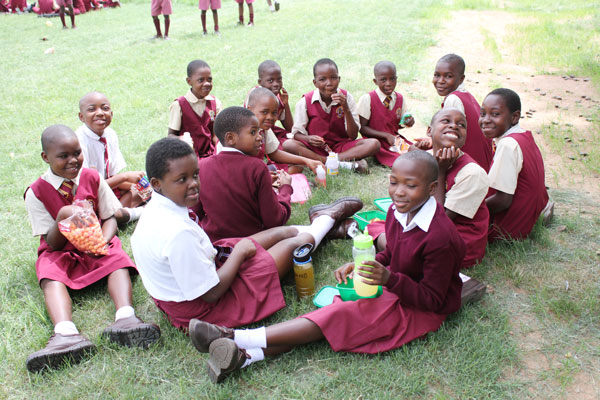
How often have you been asked: “What sort of shape are you in?” One rather rotund and relaxed gentleman responded to a similar question by saying: “I am in shape — round is a shape!” And, of course, he is correct; round is indeed a shape! It may not be the shape that people expect but it is a sort of a shape.
by Tim Middleton
In fact, round is the perfect shape. After all, a circle is the symbol of perfection, of eternity, of completeness. There is no beginning or end, no edge to it. Every point is an equal distance from the centre. A circle is ideal for movement, for progress — try putting triangular or rectangular shapes as wheels on your car! Round is the perfect shape.

As we approach the forthcoming Olympic games, it is interesting to note that the Olympians who participate in the heptathlon (ladies) and decathlon (men) have to be in good shape as they participate in seven or 10 (respectively) gruelling events, encompassing sprinting, long-distance running, throwing and jumping.
They are the true all-rounders. In cricket, every player needs to a large extent to be an all-rounder now, able to bat, bowl and field efficiently and confidently — if a player cannot do at least two, if not all three, they are not likely to be selected.
At our schools, in athletics there will be a trophy for the victor or Victrix Ludorum, the best all-rounder in different events. All-rounders are what we want.
It is not just in sport that we want and need all-rounders. Universities, businesses schools will not employ one-dimensional people who only offer one skill or attribute. they want people who offer much — well-rounded people. In a similar way, the word “balanced” suggests “rounded”.
It may be difficult to balance on a ball, but the ball is balanced by being perfectly shaped.
- Chamisa under fire over US$120K donation
- Mavhunga puts DeMbare into Chibuku quarterfinals
- Pension funds bet on Cabora Bassa oilfields
- Councils defy govt fire tender directive
Keep Reading
The object is not top-heavy or lop-sided. Have you seen how awful someone looks who has concentrated all their efforts in weight-training on their upper body and ignored the legs? Two tiny spindly legs supporting a grossly-exaggerated upper body packed with muscle (all too often purely “mirror muscles”, so-called not for functionality but for looks) — that is not what is intended. Everything needs to be balanced — including children.
Our own Ministry of Primary and Secondary Education has as its Mission Statement, the strong assertion that it seeks “To be the leading provider of quality education, sport, arts and culture for the development of united, well-educated Zimbabweans who are patriotic, balanced, competitive, self-reliant with unhu/ubuntu”.
They stress it is education and sport and arts and culture that will make a balanced child — only with ALL of those ingredients can a child be balanced — if not, he will be lop-sided and unable to function fully or properly.
Just as every point in a circle is equally distant from the centre, so every part of a child must be developed equally.
It should be clarified, however, that “education” in the ministry’s statement is referring to the mental, intellectual study of subjects — we would not even use the term “academics” as many children need to study commercial, practical or vocational subjects, not just the academic ones.
Furthermore, in order for us to achieve the goal of united, balanced children, we must go further and ensure that we also include the development of their spiritual, social and emotional aspects. To ignore those crucial parts of a child will be to leave him imbalanced.
A well-rounded youngster must not simply have talent but temperament too; he must have the right attitude as well as (in fact, more than) aptitude.
A clever child will not go far; a sporty child will not go far. That is why parents must understand that they (and the teachers) are to develop the whole child and not simply set their goal on academic results or sporting achievement. The child must be well-rounded and balanced.
It should come as no surprise to realise that part of being “grounded” (which we considered in the previous article) is being rounded. We may be comforted by the logic of Dr Seuss when he states that, “You’re in pretty good shape for the shape you are in.” However, we need more than that for our youngsters.
Our children are meant not just to be in “pretty good shape” but in the best shape possible — and that shape is round! Only then will they be a victor.
l Tim Middleton is the executive director of the Association of Trust Schools and author of the book on “failure” called Failing to Win. email: [email protected] website: www.atschisz.co.zw











